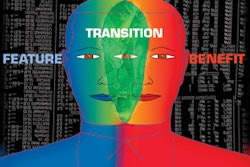Being in business isn't easy. And being in business guarantees you will encounter problems and have to deal with them. The more efficiently you handle problems, the more excellence you will have in business and in life. Learning to solve problems effectively is a major key to business and professional success.
But problems aren't fun to deal with. I don't like to have to confront employees or co-workers when problems arise. I don't always like to deal with the problems in my employees, company or community. It's not always easy, it takes work and it's often not comfortable to deal with problems - yet it's necessary.
There are times when I have chosen to stick my head in the sand and pretend the problem didn't exist. This may work for a while but then the problem gets to the point where I have no choice but to pull my head out of the sand and deal with it. And often the time I spent in the sand only helped the problem to get bigger. I have had to learn repeatedly that ignoring problems is not the answer.
To be true to myself and my continued quest for daily excellence - I need to solve problems promptly and creatively while being respectful to all involved. Solving problems isn't a natural or even comfortable process but it can be learned. By practicing problem solving skills and techniques any one of us can learn to solve problems more effectively and not dread doing so as much as we currently may.
Acknowledge.
Before we can solve a problem, we must acknowledge that one exists. We need to get honest about what the problem is, what our part was and brainstorm some creative ways to handle the situation. I normally like to take some time alone and write down the problem, possible causes and then possible solutions. This process helps me see all angles and detach from the situation long enough to see it as it really is.
Focus.
And then before I take any action, I like to look at the things that are working project, relationship or issue. By not just focusing on the problem but also on some positive things, I am able to diffuse the emotions that can often come when we are dealing with difficult situations or people. When my kids have a problem with me or with someone else I first ask them to tell me something they like about that person. This lowers their defenses and then we can actually deal with the problem at hand.
Take time.
Problems do not have to be solved immediately. Often I have been in such a hurry to make things right immediately and move on that I don't take the time necessary to really creatively solve and look at the problem. We can take the time we need to solve the problem the best way possible. Often rushing into things can cause more problems. Although, there are many problems that do need to be dealt with immediately.
Act.
Taking action and taking the sometimes necessary risks to solve a problem can be scary. Fear often immobilizes us. Doing nothing is the worst things we can do. When we are immobilized we often make the problem bigger and let fears get out of control. We need to take action once we have decided on a course. Movement is required in order to solve problems.
Celebrate.
Once a problem has been handled to the best of your ability, take time to look back at the process and celebrate your success. If there are things you would do differently next time - make a note of those. But do not focus on what you could have done differently. Solving problems is a life long process. Take the time to acknowledge your success and the fact that you solved the problem to the best of your ability today.
Developing Excellent Problem Solving Practices
7 Keys to Solving Problems Effectively
- Identify. Identify the problem in one sentence or less. By narrowing down the problem to its simplest explanation - you are able to look at just the problem not all the others things that can with the problem.
- Analyze causes. Write down three or four possible causes. This may help you come up with ideas for solving the problem later on.
- Solutions. Write down three possible solutions to the problem. Spend some time thinking through each solution.
- Choose. Select the best solution to the problem and write down possible ways to implement the solution.
- Implement. Create an implementation plan and then take the necessary actions.
- Get Accountable. Find someone to help hold you accountable for your part of the solution and help others involved with the problem create some accountability around the actions they need to take in order to solve the problem efficiently.
- Revisit Outcome. When you have solved the problem to the best of your ability go back over the process. Analyze what worked, what didn't and what you would do differently. Effective problem solving is an ongoing learning process. Be sure to use what you learned to help with future problem solving. And don't forget to celebrate your success.



















